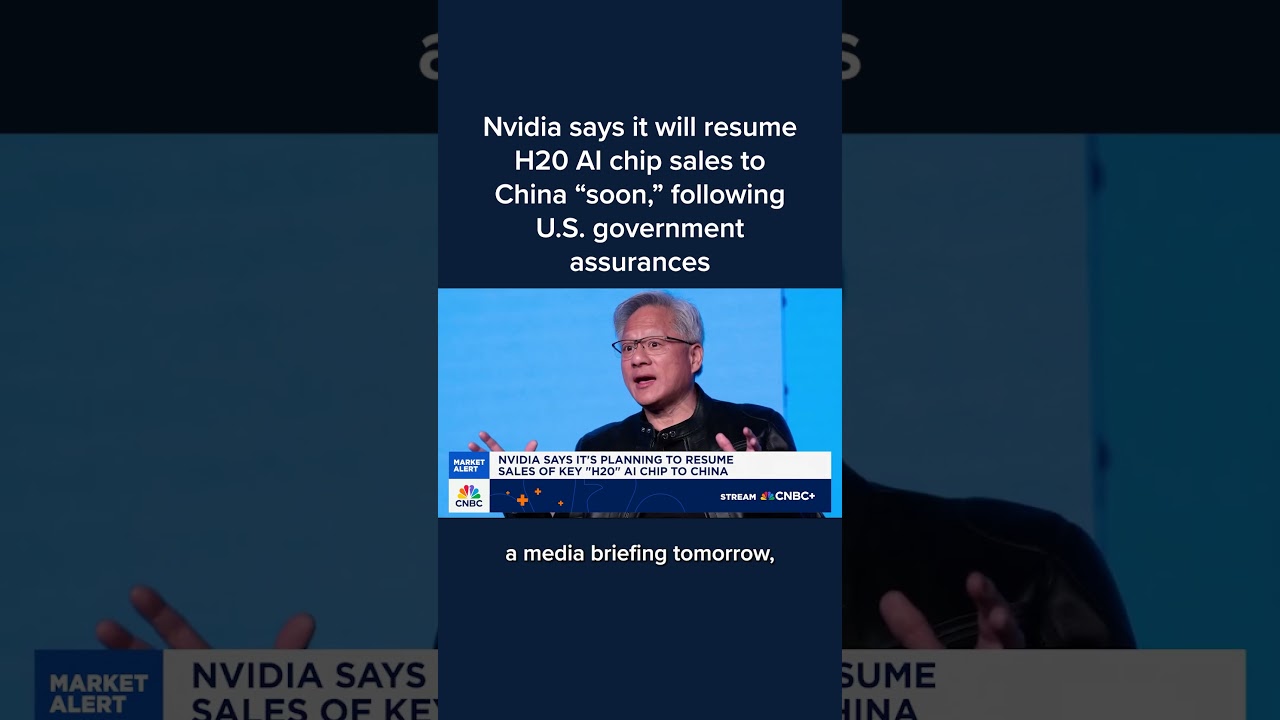Nvidia plans to resume sales of its H20 AI chip to China after filing for U.S. government licenses and introducing a compliant chip model, following export restrictions that previously halted sales and caused significant financial losses. This move reflects a potential shift in U.S.-China trade relations amid ongoing concerns about national security and geopolitical risks surrounding advanced technology exports.
Nvidia is planning to resume sales of its key AI chip, the H20 graphics processing unit, to China. The company has announced that it is filing applications with the U.S. government to restart these sales and expects to receive the necessary licenses soon. Nvidia has also introduced a new model of the chip designed specifically to comply with Chinese technology regulations, signaling its intent to navigate the complex regulatory environment.
This development comes shortly after Nvidia CEO Jensen Wong met with former President Trump in April, during which the White House had imposed export restrictions that halted Nvidia’s ability to sell the H20 chip to China. These restrictions had a significant financial impact on Nvidia, forcing the company to write off $5.5 billion worth of inventory. Wong is currently on his second visit to China within three months and is expected to hold a media briefing soon to discuss these developments further.
The news of Nvidia’s potential resumption of chip sales has positively influenced Chinese tech stocks, reflecting market optimism about improved trade relations and technology exchange between the U.S. and China. However, the situation raises numerous questions about the underlying reasons for the shift in policy. Observers are curious about what has changed between April and now that has led the U.S. government to reconsider its stance on the export restrictions.
One of the key concerns is the national security implications of selling advanced AI chips to China. If these chips were previously deemed a threat, it is unclear why the U.S. is now willing to allow their sale. This has led to speculation that the decision might be part of a broader trade negotiation or diplomatic truce involving other critical issues such as rare earth metals, tariffs, or technology regulations. Both countries appear to be seeking a balance between advancing AI technology and managing geopolitical risks.
Overall, Nvidia’s move to resume sales of the H20 chip to China highlights the complex interplay between technology, trade, and national security. It underscores the challenges faced by companies operating in a global market where political considerations heavily influence business decisions. As the situation evolves, stakeholders will be closely watching how these negotiations unfold and what impact they will have on the future of AI development and international trade relations.
